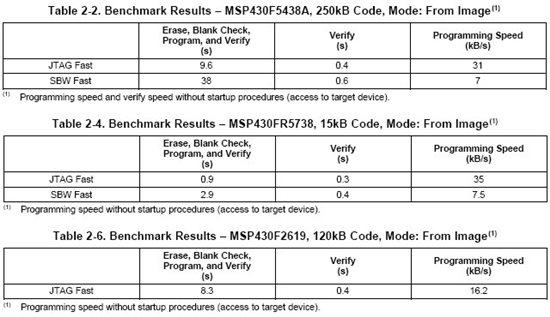There are products that claim to be faster then TI MSP-FET430UIF. What would be the best choice, So far I know of the following two:
https://www.olimex.com/Products/MSP430/JTAG/MSP430-JTAG-ISO-MK2/
http://www.elprotronic.com/flashpro430.html
Has anyone had some trouble with any?
Edit: 9/5/2013
If you are using CCS, then the MSP-FET430UIF is still the best choice. Others need tweaking to make them work.


